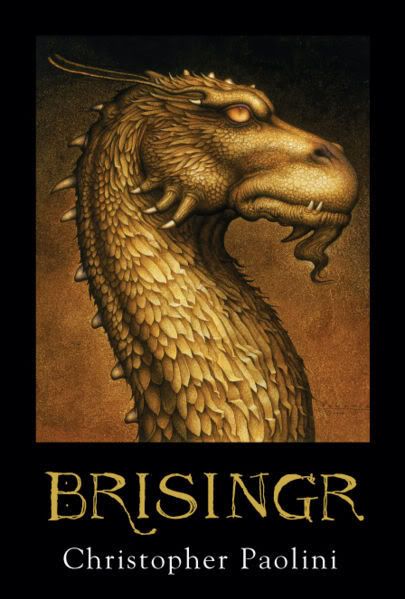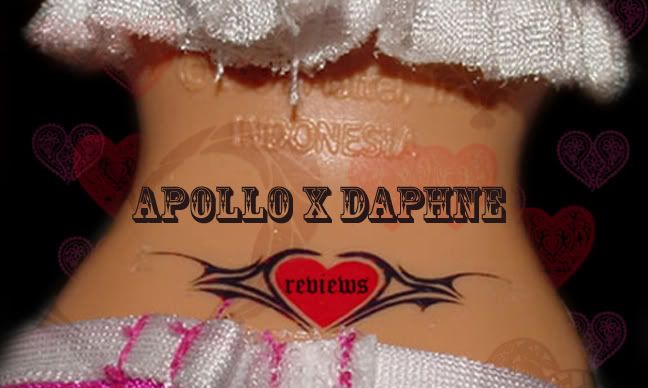
After learning that this book sold 550,000 copies on its first day of sales, the only thing running through my mind was that 550,000 people wasted $27.50 in US dollars. Admittedly, I never much liked the previous two installments in Paolini's Inheritance Cycle. His first novel seemed to me as if the characters from The Lord of the Rings had been inexplicably inserted into the plot of Star Wars... and then the whole unoriginal nightmare had been stuffed with filler ideas from myriad other fantasy novels. Now, many people will doubtless disagree with me, as demonstrated by the number of fans who lined up to buy the third book. So I shall strive to write this review as if the first two novels were literary masterpieces.
The titular 'brisingr' is a word meaning 'fire' in the magical ancient language of the series. If you are intrigued by fictional languages, you'll be happy to know that the book is filled with useless phrases in a plethora of invented languages, most of which you'll look up in the glossary only to discover that they are a variation of, "Good day, Sir Dragon Rider. May the many stars of the heavens shine down upon your life, bringing happiness to you and your dragon." You can also learn to pronounce these phrases in the ever-useful glossary- just in case you wanted to say "Let's go mine some rocks," in Dwarfish next time you pick up your date.
As for the actual substance of Brisingr, half of the 700-some pages are probably unnecessary. The novel opens with a promising 5-chapter-long subplot; but when that thread ends, so does the action of the book. The entire middle section is tedious and arduously long. The reader gets as frustrated as the protagonist at the lengthy and uninteresting proceedings of dwarf politics. Meanwhile, the rebels fight hordes of not-quite-zombies. Constant allusions to the plot twist of the last book (Eragon discovers that the evil rider Morzan is his father) set up the latest twist in the story of his parentage: Just kidding! His father is actually Brom! The equivalent is Luke finding out that no, Darth Vader was lying: Obi-Wan is his real father. All of the potentially interesting inner turmoil is sucked out of the character in an instant.
Speaking of characters, the natives of Alagaësia are as unsympathetic and difficult to relate to as ever. There is little to no character growth in the book. In fact, I think that out of all of the characters in the book, I would probably be happiest to meet the chief Urgal. I would also like to point out that while critics of J.R.R. Tolkien have said that there is too much descriptive detail in his novels, the same can easily be said of the Inheritance Trilogy. Description reaches the point of meaningless monotony. But descriptions alone aren't enough to fill up 734 pages: the book is also stuffed with random scenes that try to teach vague lessons on morals (or something) without relating to the actual plot at all.
But there are times when snatches of good literary content shine through; when a poetic phrase or two made me want to struggle onwards; when there is actually an original idea, or the hint of a real plot, or a character poised for change... in conclusion, I'd just like to say that with all the Twilight hype, I'm glad that people enjoy reading this book... because it's about fifty times better than anything Stephenie Meyer has written thus far.
-kitanra

No comments:
Post a Comment